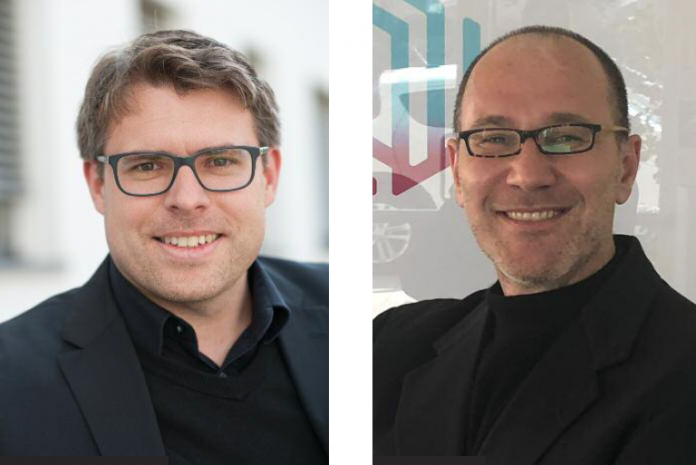Dr Christian Montag, Professor at Ulm University and Paul Dagum, MD PhD, Founder and CEO of Mindstrong Health explain the modern research endeavour of Molecular Psychology
Here, they both detail their thoughts on studying individual differences in emotional and cognitive functions of the human mind by combining molecular genetics and smartphone technologies
Molecular Psychology represents a modern research endeavour which developed on the background of results from heritability research and related fields of psychological science. Abundant twin research yielded evidence that both nature and nurture are of high relevance to understanding both individual differences in emotionality and cognitive functions. Moreover, both nature and nurture cannot be seen as being distinct entities, because they act upon each other in a dynamic interplay. With the upcoming of fascinating neuroscientific technologies, the discipline of Molecular Psychology aims to disentangle both the molecular genetics and epigenetic underpinnings of (rather stable) individual differences in emotional and cognitive functions.
A better understanding of the molecular mechanisms underlying human individuality is of high interest beyond satisfying human curiosity because individual differences in psychological traits, such as personality are linked to a wide range of important life variables including health behaviour, longevity and the likelihood to suffer from affective disorders. Aside from this, studying the molecular basis of cognition in healthy participants will give valuable insights into the proper functioning of the human mind, which is also of relevance to understanding the cognitive decline in devastating human conditions, such as Alzheimer’s disease. Both affective disorders and dementia represent a huge financial burden for societies around the globe and inflict pain for both patients and their caring families.
Although the discipline of Molecular Psychology is still young, some progress has been made with the result of a few genetic variants being robustly linked to psychological traits, such as neuroticism. That said, it is also true that many results from genetic association studies in the field of psychology and psychiatry do not replicate well and have hampered the progress in this research area.
Recent research endeavours observed that the study of extremely large sample sizes going in the hundreds of thousands in terms of participants applying so-called genome-wide association studies enhance the likelihood of producing robust outcomes. Added to this, candidate gene approaches to investigate smaller samples might also lead to valid results, but chances of producing valid findings will only rise if researchers find genetic associations with a certain psychological trait across independent samples, best stemming from different cultures.
Another approach to increasing the power of statistical testing in such candidate gene studies can be achieved by a priori genotyping. This means that persons are invited according to their genotype to a study (after establishing genetic databanks), with the aim of having the same cell sizes in each experimental group.
Beyond this, the past has seen that many investigators applied their own “favourite” self-report or neuropsychological test batteries to assess psychological traits. This again limits the comparability of results across studies. Here, in particular tracking of real-world-behaviour might help to overcome this problem. Moreover, directly recorded behaviour might give more unbiased insights into a person’s lifestyle and behaviour.
Digital phenotyping as a new window to understanding psychopathology
In the last years, a growing number of researchers started to explore the possibilities of digital phenotyping to improve diagnosis in psychiatry. In principle, all traces recorded from human interaction with the Internet of Things (IoT) can be used to get insights into a person’s cognitive and psychological condition. One of the most prominent devices with the tremendous potential to be studied currently, without doubt, is the smartphone. This is because of its many inbuilt sensors, recent research demonstrating that touchscreen interactions are predictive of clinically significant changes in cognition and mood, and the fact that currently, 2.5 billion humans interact with a smartphone on a daily basis. Such data can aid the psycho-therapeutical process. Finally, cognitive functions might also co-vary with smartphone usage patterns. Persons in the transit zone from mild cognitive impairment to Alzheimer’s disease might be characterised by measured changes in touchscreen interactions and a shrinking word pool in daily online communication.
The potential for digital phenotyping to improve healthcare is tremendous. We seek to demonstrate that certain smartphone and in general IoT variables not “only” covary with psychological variables but also to their underlying neuropathology. Finally, digital phenotyping should be considered as protected health information and as such, to only be used in clinical settings where it can be regulated by health privacy policies.
Christian Montag’s Molecular Psychology lab teams up with Paul Dagum’s Mindstrong Health
Prof Dr Christian Montag’s lab at Ulm University (Ulm, Germany) published in 2017’s research on molecular genetic markers underlying individual differences in areas – such as autistic traits derived via self-report – but also demonstrated the feasibility of linking biological markers to real-world behaviour as tracked via smartphones. During 2017, Montag’s group provided the first evidence that lower gray matter volumes of the nucleus accumbens (part of the brain’s reward circuitry) as assessed via MRI scans are linked to a longer and higher frequent use of the Facebook application on smartphones. Aside from this, new work of Montag’s group proved that molecular genetic markers, here a genetic variant of the oxytocin receptor gene, can be linked to real-world variables tracked via the smartphone.
Mindstrong Health is a Silicon Valley healthcare technology company founded by Paul Dagum, MD PhD. His team, including president Dr Tom Insel, former director of the NIMH, who went on to lead the mental health team at Verily, developed a smartphone application which links human-smartphone-interaction patterns to psychopathological states. The ultimate goal of this smartphone application is to improve early detection and pre-emptive intervention in the areas of both psychiatric and neurodegenerative disorders.
Both Montag and Dagum are convinced that the fusion of bio- and med-tech can demonstrate that digital phenotyping provides deep insights into neuropsychiatric conditions.
Please note: this is a commercial profile
Dr Christian Montag
Professor
Ulm University
Tel: +49 (0)731 502 6550











